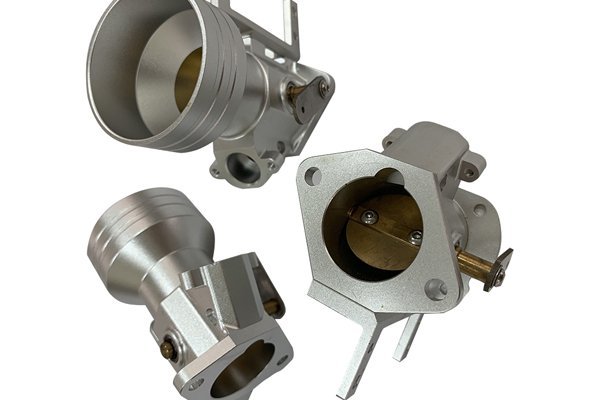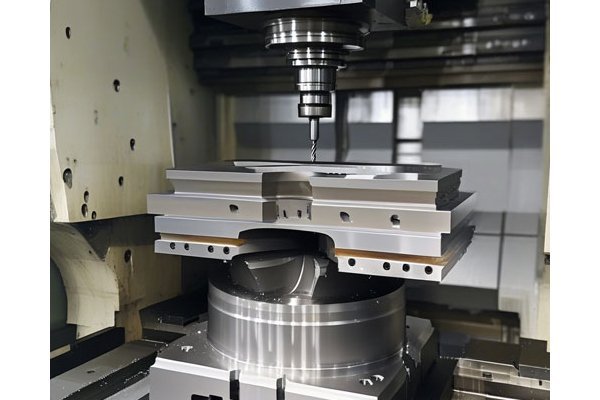Did you know that industrial equipment failure can lead to losses exceeding $10,000 per hour in downtime? In today’s highly competitive market, ensuring that your machining processes are reliable and efficient is paramount to success. The quality and durability of CNC parts are critical factors influencing not only the performance of the machinery but also the overall productivity and profitability of operations.
In this blog post, we will explore the benefits of using durable CNC parts for industrial applications, offering a detailed understanding of why they are essential in modern manufacturing processes and solutions to common challenges encountered in the industry.
The Importance of CNC Machining
CNC (Computer Numerical Control) machining has revolutionized the manufacturing sector by providing precision and efficiency that traditional machining methods cannot match. From aerospace to automotive, durable CNC parts play a significant role in producing components that are not only functional but also resilient against friction, wear, and stress.
Durability in CNC parts refers to the ability of a component to withstand the rigors of application without failed operation or degradation over time. Several factors contribute to the durability of CNC parts:
A. Enhanced Performance and Efficiency
Durable CNC parts are crucial in optimizing performance. Machinery that operates consistently and reliably minimizes the risk of unexpected breakdowns and enhances overall efficiency.
B. Cost-effectiveness and Long-term Savings
While the initial investment for durable CNC parts may be higher, the long-term savings generated by fewer replacements and reduced maintenance costs are substantial.
C. Improved Quality of Products
The necessity for high-quality outputs in manufacturing cannot be overstated. CNC parts that are durable and well-manufactured contribute to the superior quality of end products.
While emerging technologies constantly enhance machining processes, the industry still faces challenges related to the use of non-durable CNC parts:
A. Increased Wear and Tear
Non-durable parts can lead to frequent wear, ultimately causing unexpected breakdowns and the need for more regular maintenance. This not only results in constructional inefficiencies but also affects the entire supply chain.
B. Safety Risks
Using non-durable CNC parts heightens the risk of machinery failure, which can pose safety hazards. Manufacturing environments demand reliability, as machinery’s malfunction can lead to accidents, endangering both workers and equipment.

C. Environmental Impact
Regular manufacturing operations relying on non-durable components often result in an increased environmental footprint due to waste generated from frequent replacements and repairs.
A. Proper Material Selection
Choosing the right material is crucial. Here are some options commonly used in CNC machining:
B. Optimize Machining Processes
Optimizing machining processes can significantly impact the durability of CNC parts. Consider the following:
C. Regular Maintenance and Inspection
Regular maintenance of machinery and periodic inspections of parts help identify wear and address potential failures before they become critical.
As technology evolves, the future of CNC machining and durable parts remains promising. Here’s a glimpse of what lies ahead:
A. Smart Manufacturing
The integration of IoT and smart technologies in manufacturing could enable real-time monitoring of equipment condition, providing insights into durability and performance metrics.
B. Advanced Materials
Emerging materials such as composites and polymers engineered for durability will play a significant role in enhancing the quality and longevity of CNC parts.
C. Sustainability in Manufacturing
As manufacturing industries shift focus toward sustainable practices, the demand for durable and environmentally friendly materials rises.
In conclusion, the role of durable CNC parts in industrial applications cannot be overstated. Their impact on performance, cost-effectiveness, product quality, and operational safety is profound. By focusing on proper material choices, optimizing machining processes, and implementing strong maintenance strategies, manufacturers can ensure the durability of their CNC parts, ultimately enhancing productivity and reducing costs.
As we navigate an increasingly competitive landscape, the importance of durable CNC components will only grow. As an industry professional, considering these insights—whether you’re a manufacturer, an engineer, or someone involved in sourcing materials—will be imperative to your operational success and sustainability in the long run. Reflecting on these practices and the considerations outlined in this blog could lead you toward groundbreaking improvements in your processes. Why settle for mediocrity when durability can be the key to excellence? Don’t just manufacture—innovate with durable CNC parts and watch your productivity soar.






